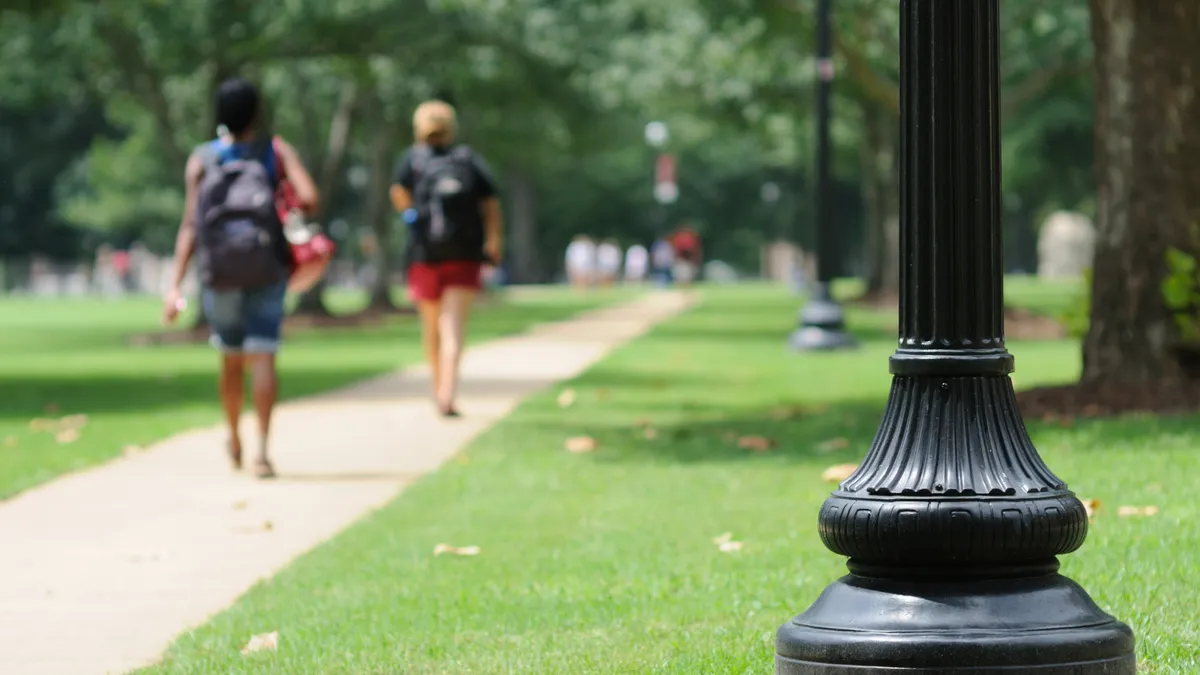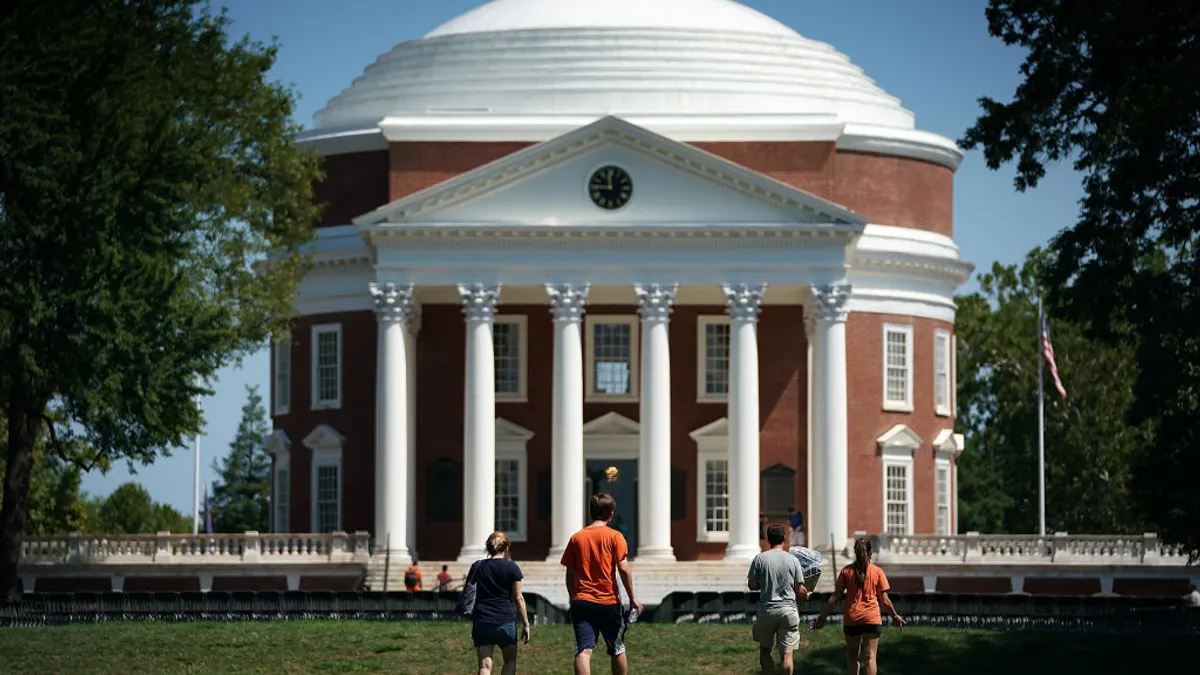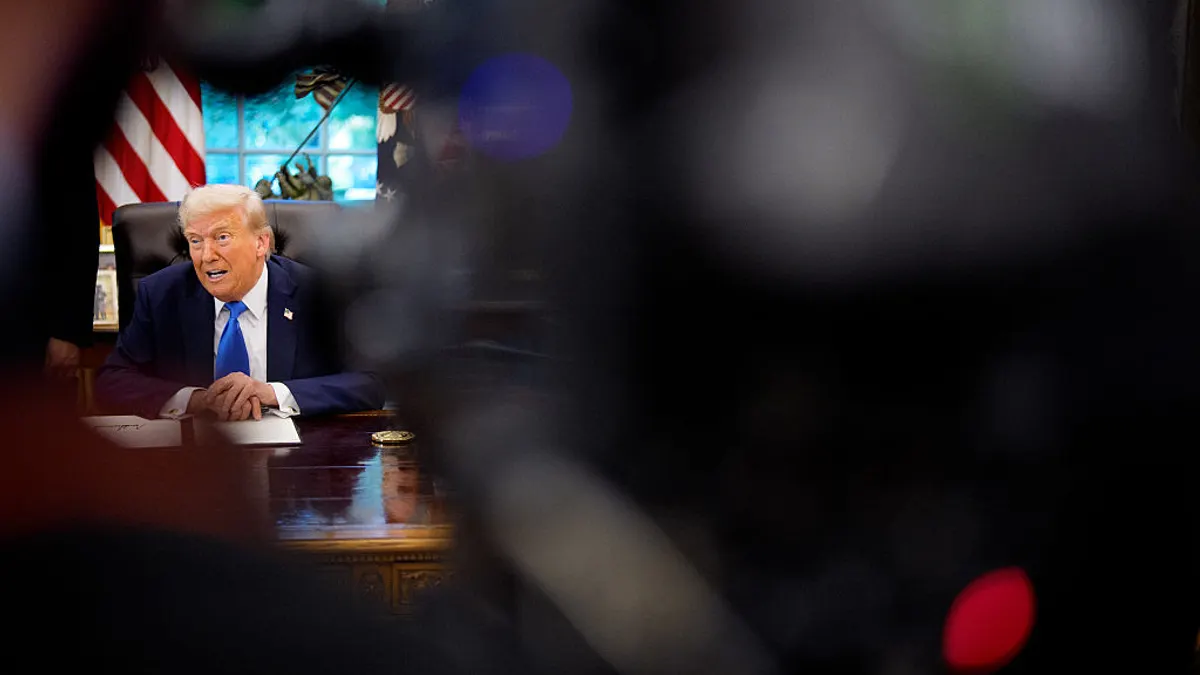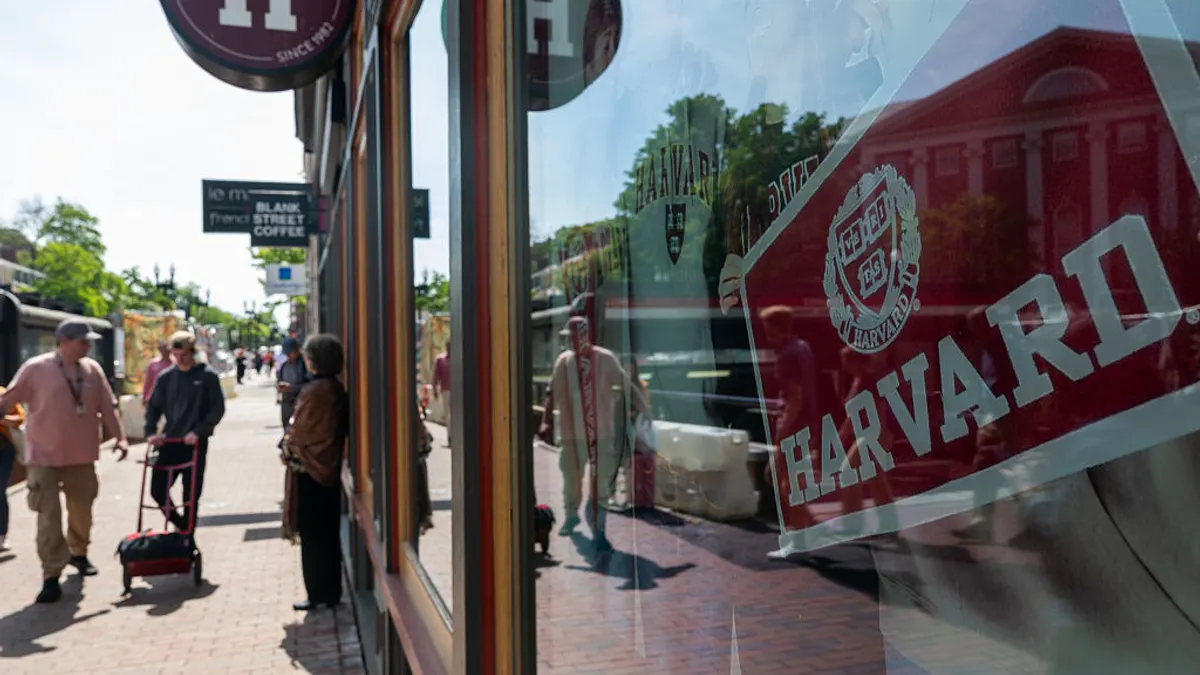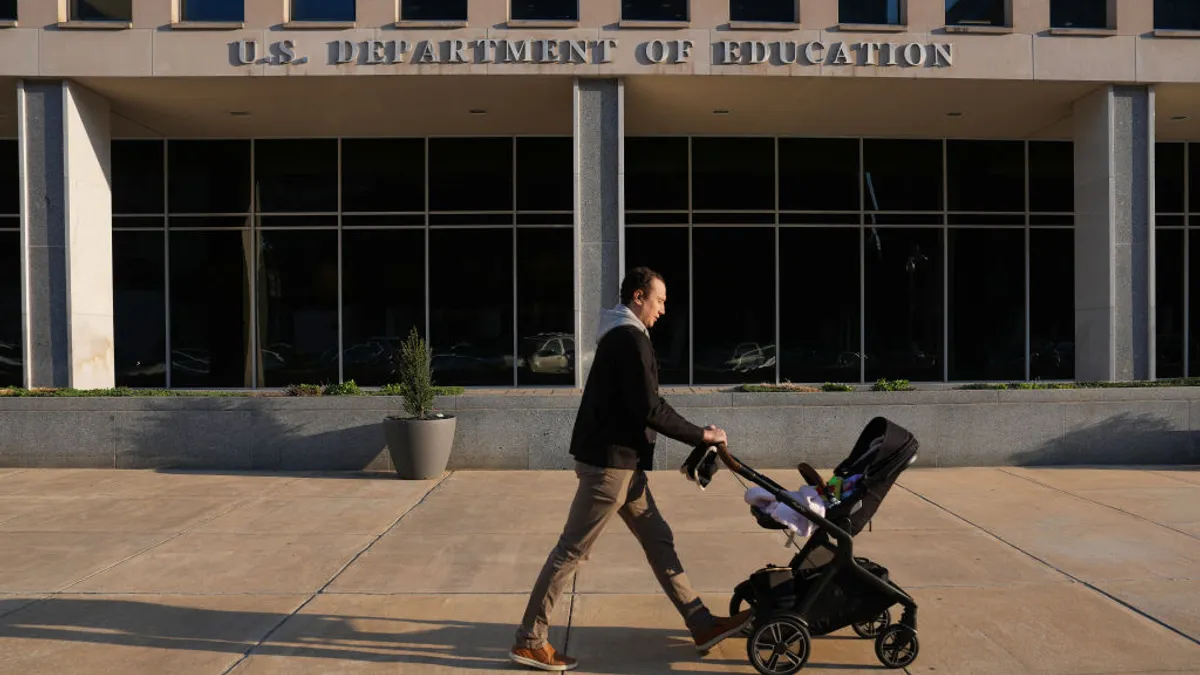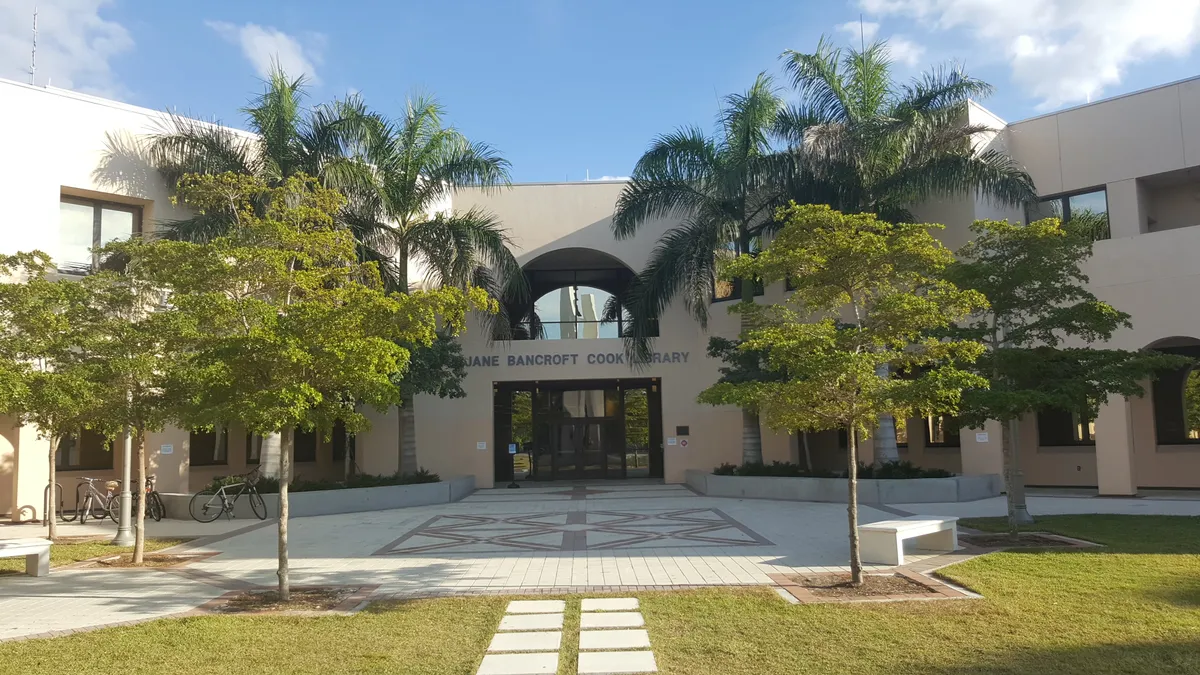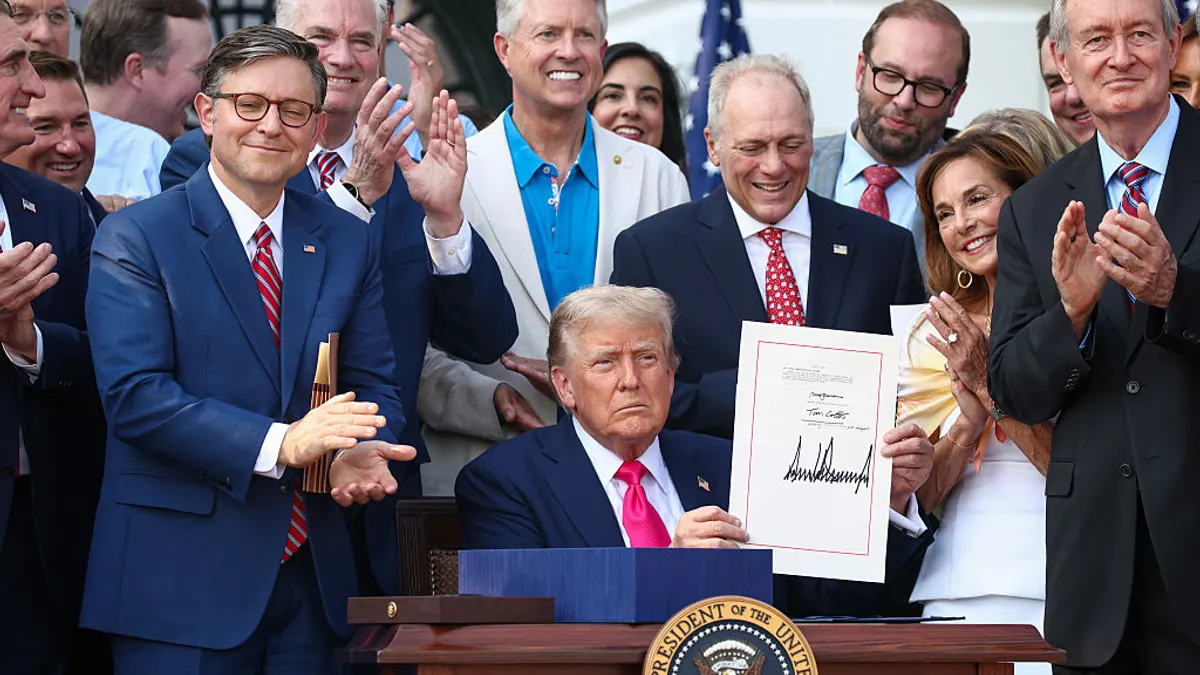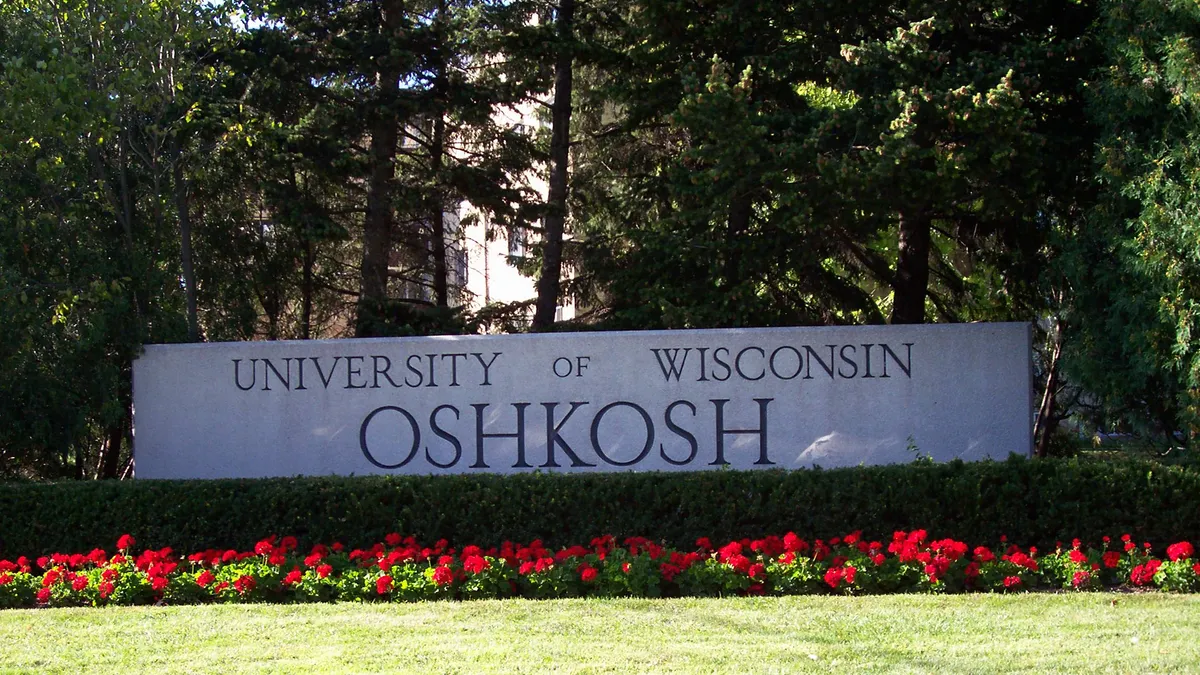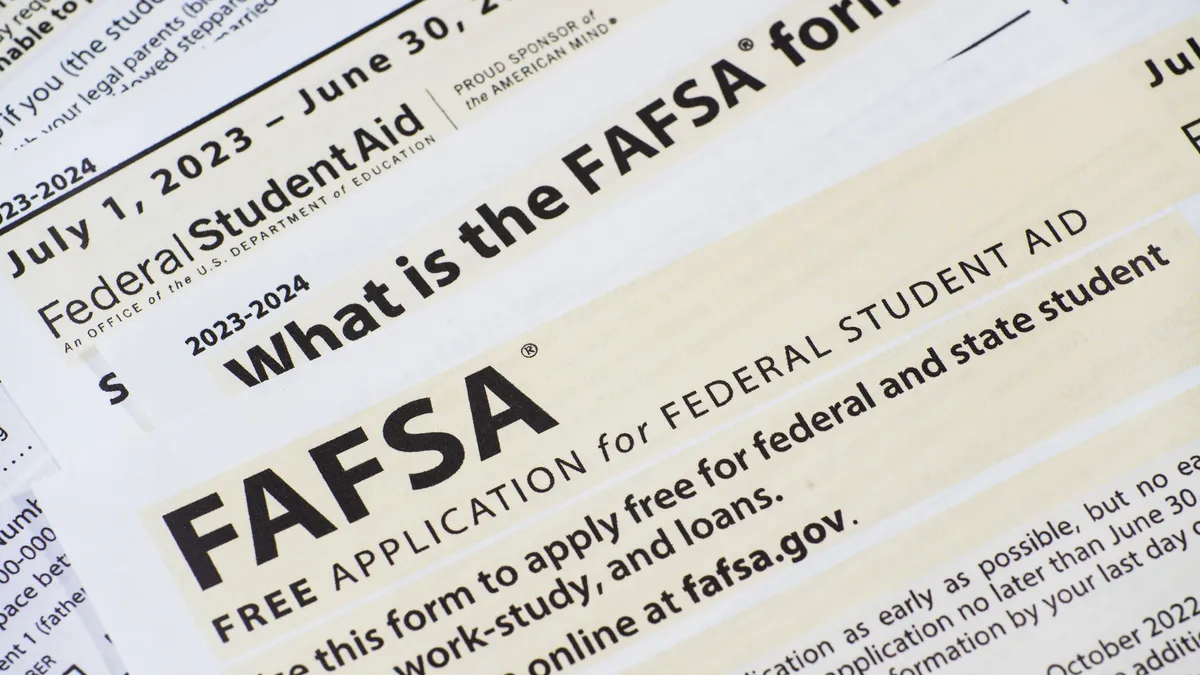When Joe Biden was still a presidential hopeful, he pledged to step up oversight of the for-profit college industry if he were chosen to lead the nation.
His administration took steps to fulfill that promise this month. The U.S. Department of Education announced it is reviving an enforcement division dismantled under the Trump administration that will be responsible for investigating whether colleges are abusing federal student aid and posing a risk to students and taxpayers.
"Vigorously ensuring that schools are adhering to the federal student aid program rules and delivering quality education to students is critical in America's ability to build back better," undersecretary James Kvaal said in the announcement.
The enforcement unit is being reestablished within the Education Department's Federal Student Aid office. Its restoration signals that the agency is picking up the mantle of the Obama administration's quest to crack down on abuses at for-profit colleges. Yet some industry leaders worry the move will unfairly punish these schools.
"Our fear is that this is just one more effort to target our sector and weaponize this new enforcement unit in a way that is going to only make it more difficult for proprietary schools to operate," said Jason Altmire, president and CEO of Career Education Colleges and Universities, a group representing for-profit colleges.
Altmire noted the enforcement unit's announcement followed another recent action from the Biden administration that signals an intent to focus on the for-profit sector.
Earlier this month, the Federal Trade Commission warned 70 of the largest for-profit schools that they could face hefty fines if they made misrepresentations to students about their programs.
"This is a coordinated effort," Altmire said.
"For-profit colleges essentially ran the Department for four years under Donald Trump and Betsy DeVos."

Sen. Dick Durbin, D-Ill.
However, it's still unclear what colleges the enforcement unit will investigate and whether it will focus primarily on for-profit colleges. Some higher education experts hope the division will look into abuses across the entire sector and let student complaints determine where officials direct their efforts. And some said the mere presence of an enforcement division will likely spur for-profit schools to ensure they're following laws and regulations.
"A priority for this enforcement division is actually to develop a meaningful way to get consumer complaints, get student complaints," said Beth Stein, a senior advisor at The Institute for College Access and Success, a group promoting accountability and equity in higher ed. "The absence of a meaningful way for students to report has in the past been one of the biggest obstacles to enforcement in this space."
A revived enforcement unit
Before the Trump administration dismantled the unit, the enforcement division was investigating potentially misleading marketing and recruitment practices at for-profit schools. They included schools owned by Adtalem Global Education, formerly known as DeVry Education Group, The Washington Post reported.
But former Education Secretary Betsy DeVos "deprioritized" the unit, according to the agency's October announcement. DeVos named a former DeVry official to lead the enforcement division even though he had no investigative or legal experience.
Sen. Dick Durbin, a Democrat from Illinois, praised the revival of the enforcement unit.
"Reestablishing an aggressive enforcement office at the Department of Education is key to holding for-profit colleges accountable and protecting students and taxpayers," he said in a statement. "For-profit colleges essentially ran the Department for four years under Donald Trump and Betsy DeVos. With this announcement, President Biden and Secretary Cardona are making clear that those days are over."
Four divisions will comprise the revived unit. They include:
- A group that will track reports of suspicious activity and complaints against colleges participating in federal student aid programs.
- A group that will investigate whether colleges are complying with federal laws and regulations. It will work with the U.S. Department of Justice, the Consumer Financial Protection Bureau, the Federal Trade Commission and state attorneys general.
- A group that will analyze borrower defense to repayment claims, which allow students to have their loans forgiven if their institution made misleading statements to entice them to enroll.
- A group that will impose disciplinary actions including fines and terminations against colleges participating in federal student aid programs that don't follow student aid laws or regulations. It will also resolve appeals against such actions.
Which schools will be investigated?
For some, the Ed Department's move to breathe new life into the enforcement division is a clear sign that the Biden administration will focus its efforts on weeding out potential issues at for-profit colleges.
"It's not too much of a mystery," said Trace Urdan, managing director at Tyton Partners, an investment banking and consulting firm that does business in the higher ed space. "They are looking to restore a lot of the infrastructure that was dismantled by Trump around maintaining a high degree of focus specifically on for-profit colleges."
An open question is whether the Ed Department will focus its efforts on large, for-profit schools or look into some of the smaller colleges. But Urdan predicts the enforcement division won't find egregious infractions at some of the biggest for-profits, which have been preparing for more oversight under the Biden administration.
Large for-profit chains like ITT Technical Institute and Dream Center Education Holdings have in the past drawn national attention when they collapsed because they enrolled tens of thousands of students at their peaks. But smaller chains also suddenly close, such as Vista College, which enrolled a few thousand students across sites in Texas, New Mexico and Arkansas before abruptly closing its doors this fall.
Urdan hopes the enforcement division and Federal Student Aid Chief Operating Officer Richard Cordray will look into potential issues at nonprofit schools as well.
"It would go a long way toward Richard Cordray's credit if he were to actually use this same initiative to hold some nonprofit schools accountable by similar standards," Urdan said. "But I'm not holding my breath for that outcome."
"They are looking to restore a lot of the infrastructure that was dismantled by Trump around maintaining a high degree of focus specifically on for-profit colleges."

Trace Urdan
Managing director, Tyton Partners
Other higher ed experts are also hoping the enforcement division expands its scope beyond just for-profit schools.
Stephanie Hall — a senior fellow at The Century Foundation, a left-leaning think tank — said she would like the unit to also look at online program managers, or OPMs. These for-profit companies help colleges launch and run online programs, usually in exchange for a cut of tuition revenue.
A recent investigation from the The Century Foundation found OPMs were responsible for helping to run online programs that accounted for over half of the enrollment at some nonprofit colleges.
"I'm hoping that the reviving of this unit signals that they're going to scrutinize those partnerships," Hall said. That would ensure that OPMs' actions were "legal, aboveboard and not predatory in terms of how they are recruiting students or sharing information with students."
The Ed Department's announcement says the investigations group will look into potential misconduct by third-party servicers as well as colleges.
The mere presence of an enforcement division and the FTC's warning to for-profit schools could encourage lawful behavior, Hall said.
"Maybe they become more detailed in making sure every single person in their call center is sharing 100% honest, clear and accurate information," Hall said. "Maybe previously they didn't have as much of an incentive."


